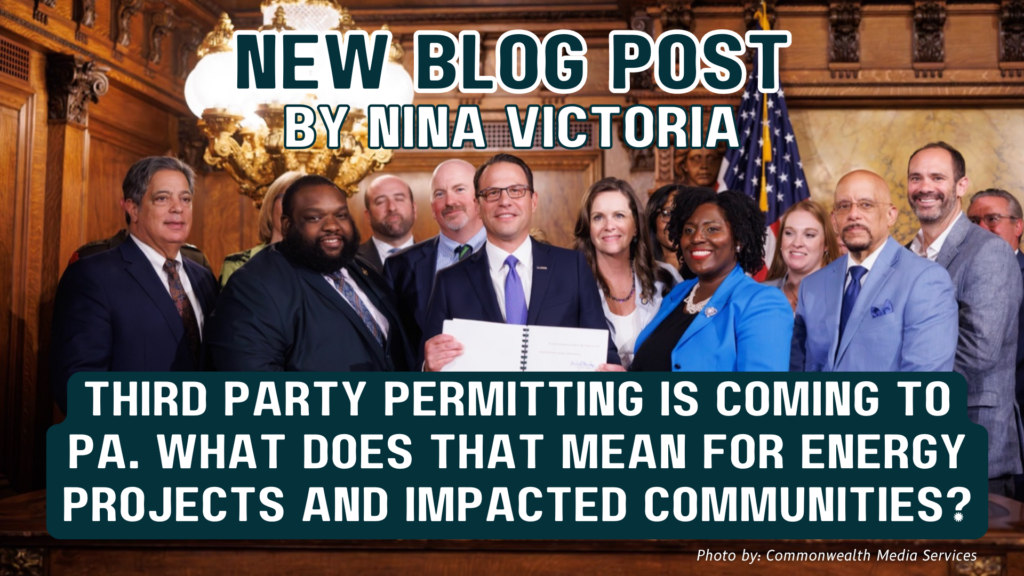
Every year at the beginning of summer, our Pennsylvania lawmakers spend weeks deciding how the state’s money will be spent in the upcoming year. Each party has priorities and negotiates to determine what will be included in the final budget. This budget season, our lawmakers kept much of their negotiations behind closed doors, and details didn’t come out until the budget was finalized. While CCJ had some insight on certain things that were on the table for discussion, we were surprised to find a proposal that has been around for three legislative sessions (six years!) without passing included in the final budget – Third-Party Permitting.
By this fall, the Pennsylvania Department of Environmental Protection (DEP) will be required to recruit qualified individuals to become third-party permit reviewers. Then, permit applicants can elect to go through an alternate permitting route that is meant to be an expedited process.
However, the bill’s language does not decrease permit timelines for third-party permitting. Instead, each permit will undergo two reviews in the same permit timeline. The third-party permitter will do one review according to all DEP regulations, and the DEP will review and approve the final permit. It is unclear what the DEP’s final review will look like, but it could be expected that the DEP will mainly be checking the work of the first review and issuing a permit decision based on that recommendation.
Most alarmingly, this program would allow an applicant to choose who will complete their permit review as long as there are enough third-party reviewers eligible to participate. A reviewer who has done work for the applicant in the last three years cannot complete a permit review for them, but this is essentially the only limit to who they can choose.
To put it briefly, this program allows permit applicants to choose a favorable third-party permit reviewer and then encourages the DEP to rubber-stamp an application through penalties for late decisions, as long as there are no glaring deficiencies that would compel an updated application or permit denial.
No matter what it does, no law should be made in Pennsylvania without informing the public that it is being considered, which is what our legislators did here. They denied Pennsylvania citizens their ability to give input on the proposals in front of their representatives before a vote took place. Instead of listening to residents who live near infrastructure to increase their safety, our lawmakers put business interests first and covertly passed a law that is applauded by the gas industry – potentially putting our health and environment in jeopardy.
